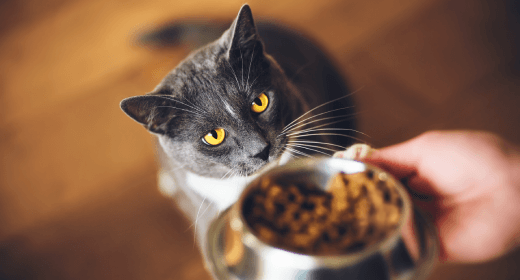

Nutrition is an important part of pet care, and food is one of the basic needs of a dog. So, we cannot go wrong when it comes to feeding our fur babies. And how would anyone mess it up? As humans, we are used to satisfying the nutritional needs of ourselves. How difficult could it possibly be to do the same for a dog? Well, thanks to the endless varieties of dog food available in the market, choosing the right kind of puppy food has become a challenge. But fret not! With this comprehensive feeding guide, you can plan a healthy and balanced diet for your new-born puppy. It also covers questions like what, when, and how often to feed a puppy.
Complete and balanced nutrition is critical for the healthy growth of your puppy. In fact, according to Dr. Saza Curaming, “A puppy grows about 12x faster than a human child. That’s why the first year of a dog’s life is a critical stage and this will dictate its further development. It is at this stage where you must constantly monitor its nutrition and feeding regimen.” So, let’s look at the food guide for the first year of a newborn pup:
As compared to adult dogs, puppies need a higher protein intake. It helps with muscle development and tissue repair. Hence, it is imperative to include protein-rich foods in their diet. While iron helps create red blood cells, calcium strengthens bones and teeth. As your puppy grows, it will start learning new things. And to ensure that your pooch can see and conceive new things, it needs DHA – an omega-3 fatty acid that supports healthy vision and brain development. You must also include prebiotics in its diet as your pet cannot have a healthy gut without it!
Give your dog the food that’s specifically formulated for its breed and age. Since small breed dogs have a tiny mouth, they require smaller kibbles. Moreover, large breed dogs have a slower metabolism; hence, they require fewer calories per kilogram of their bodyweight when compared to a small or medium breed dog.
IAMS™ Proactive Health™ Starter Mother and Baby Dog is loaded with essential nutrients like protein, vitamins, and minerals. It is scientifically formulated to raise your pup’s training potential and brain development. With IAMS™, you make sure that your little pooch receives a balanced and complete meal. This dog food is perfect for newbie mother dogs as well. It ensures production of quality milk for healthy growth of the puppy.
Now that you know the nutritional requirements of a dog, let us check out the food items that are harmful for your pooch:
A fat puppy might not necessarily mean a healthy pet. The way childhood obesity often leads to medical complications in humans, an overweight puppy can also grow up to have health problems. So, make sure you monitor your furry friend’s calorie intake. This includes keeping an eye on the amount of treats you give your pup each day! Remember that treats are not the only way of rewarding a dog. You can make it feel loved and appreciated with praises, pats, and belly rubs as well.
While choosing a food for your puppy, go for the one that is specially made for your pet. Today, dog food brands have different food for different age groups and breeds. So, choose the one that fits your pet’s age, breed, and needs. In case you are having a hard time choosing the right puppy food, you can also consult your vet regarding the same.
You should feed complete and balanced puppy food to your puppy every day. Choose between dry and wet puppy food or mix the two.
Check out the below table to understand how much food you should feed your puppy:
| Age | Feedings |
| 6 to 12 weeks | 4 |
| 3 to 6 months | 3 |
| 6 to 12 months | 2 |
Chicken, beef, fish, fruits, and vegetables are a few healthy ingredients in dog food. However, the best food for puppies would always be rich in protein. So, go for dog foods with chicken, beef, or fish as main ingredients.


At about 12 months, your cat no longer requires the high levels of minerals, protein, and energy needed while he was a quickly growing kitten. So switch him to a high-quality food, such as IAMS™ ProActive Health™ Adult Original with Chicken, which is specifically balanced for the nutritional needs of adult cats. When choosing food, follow these steps.
Once you've selected a food, establish healthy feeding habits.